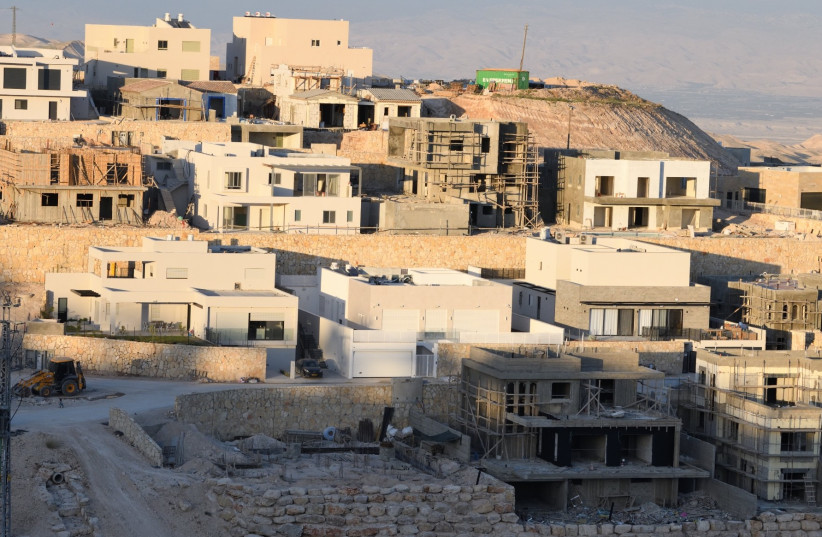Human rights organizations raised alarm on Sunday over a private bill approved by the Ministerial Legislative Committee to expand town acceptance committees on the West Bank and larger communities, charging that the proposal is racist and undemocratic.
The amendment to the 2011 law that allows towns to screen aspiring applicants would expand the applicability of the legislation from townships with 400 households to those with up to 1,000 households. The current law applies to “community settlements” in the Negev and the Galilee. The private bill submitted by Otzma Yehudit MK Yitzhak Kreuzer in January would include the Emek Iron, South Hebron Hills, Lachish and Adullam regions. A similar government bill will also be considered by the Knesset.
Adalah – The Legal Center for Arab Minority Rights in Israel said the bill was part of a series of measures to implement “racial segregation” and promote the annexation of Judea and Samaria.
The law does not allow acceptance committees to reject resident candidates “for reasons of race, religion, gender, nationality, disability, class, age, parentage, sexual orientation, country of origin, views or party political affiliation,” it said.

Provisions allowing applicants deemed unsuitable for the social fabric or compatibility with the social structure of the town effectively sanction discrimination, Adalah said.
“The Acceptance Committee Law is already used to regulate a mechanism of racial segregation and is intended to implement the value of Jewish settlement that the Nation State Law enshrines as a supreme principle,” Adalah’s Dr. Suhad Bashara said in a statement. “The government’s documents openly reveal that the deepening of racism is now Israel’s official policy, and that it wishes to act to annex the occupied territories by applying the law.”
Israeli NGO disputes government's claim
The application of Israeli law in the disputed territories constituted an act of annexation, Adalah said.
The Association for Civil Rights in Israel (ACRI) said the Knesset was not authorized to enact a law for West Bank settlements, and expansion of the law is undemocratic.
The current law is already controversial and was supposed to apply to small communities with unique characteristics, such as kibbutzim, moshavim and their expanded neighborhoods, it said.
“In a democratic country, every citizen has the right to live wherever they want, as part of human dignity, and subjecting this right to an invasive and prying selection process requires thorough justification,” ACRI said.
There was no justification for acceptance committees in normal suburban areas, it said, adding that the existence of these screening procedures would discourage many from seeking residency in these regions.
The provisions of the bill were too broad and vague, and they allow for arbitrariness and discrimination, whether open or hidden, conscious or unconscious, ACRI said.
Kroizer said he welcomed the passing of the bill in the ministerial committee, adding that the “bill will help strengthen the expansion of towns in the South and North, cut down on bureaucracy and strengthen settlement.”
The law was highly controversial at the time of its passing in 2011. Critics alleged that the bill sought to prevent Arab-Israelis from living in communities with a Jewish majority.
Sunday’s amendment said the goal of the legislation was to decentralize the population and strengthen the periphery by giving residents the means of maintaining their communal and rural ways of life.
The bill’s explanatory notes said the draft law had failed to provide these benefits to communities in the other periphery areas in Israel, which would be rectified by the amendment.
